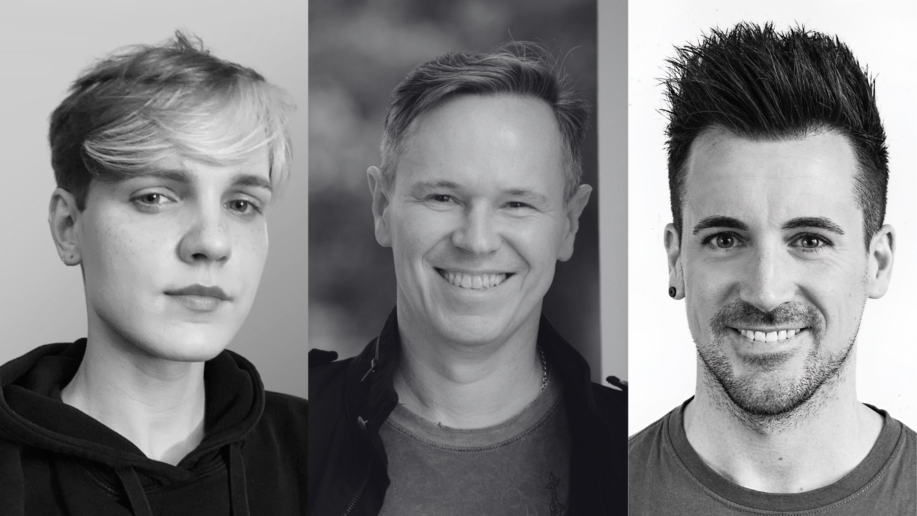
A talk with… Leon Wiersch, Detlev Blenk and
Christian Lemkens
PROUT AMPLIFIER
As part of our PROUT AMPLIFIER project, we not only talk to outstanding PROUT PERFORMERS, but also to committed people who are not yet heard as much, but who do at least as important work for queer diversity in the company. Detlev Blenk, Diversity and Inclusion Manager at IKEA, introduces us to his colleagues Christian Lemkens and Leon Wiersch, who are driving forward exemplary work for queer diversity and equal opportunities in the workplace, particularly in their areas of responsibility. We spoke to them about their commitment at IKEA and their motivation behind it.
How important are diversity and queer friendliness in your
company?
Detlev: The retail sector in general employs an above-average number of queer people, and it’s the same at IKEA. Based on global surveys, we assume a figure of 10 to 13%. This large figure alone places a special focus on our diversity and inclusion activities. Our credo: All people should be allowed to be who they are at IKEA – regardless of age, origin, gender, sexual or gender identity and physical or mental abilities.
What values characterize your day-to-day work and how are
they lived?
Detlev: The culture at IKEA is very much determined by our values. These have their origins in Sweden and characterize our interactions, our encounters with customers, applicants and suppliers.
What makes Leon and Chris role models and why exactly should
their perspectives be heard and seen?
Detlev: I thought it was a great idea not to focus on the usual faces from the upper echelons of management, but to give a voice to those who do and achieve so much for the queer community in the company, at queer fairs or other events. Leon and Chris are two of many colleagues who are passionately involved either locally in an IKEA store or as a member of the network management of our queer employee network.
Is there a special moment (or a joint project/current
collaboration) with them that you would like to tell us about?
Detlev: Chris almost single-handedly managed the operational side of our national participation in the CSDs in Berlin and Cologne and motivated our colleagues on the trucks with a passion for a colorful and diverse world. Leon is a big driver of diversity and inclusion for his IKEA store and brings a lot of ideas to the table.
As an established PROUT PERFORMER, what can you learn from
your colleagues? Perhaps especially from younger ones or from
those from completely different fields of activity? Where does
it make sense to work together (even more closely)?
Detlev: We learn a lot from each other. As a gay man in my mid-fifties, I’ve had different experiences in life than Chris and Leon. Their queer experiences are broader and not just focused on the “G” in LGBTQIA+. I’m always happy to learn more. And, of course, they are much more relaxed than I am about getting through nine hours on a CSD truck. Everyone contributes here with their possibilities and experiences – in the spirit of IKEA: “You do your part, we do our part, together we create a better world for the many people”.
What job do you currently do at IKEA and how long have you been with the company?
Christian: I’ve been with the company for almost exactly 15 years now. Since February as IKEA for Business Country Specialist. In this role, I work closely with various interfaces (e.g. Marketing or Customer Fulfillment, but also the local stores) and implement the business strategy and corporate goals together with my colleagues.
Leon: I am also celebrating a small anniversary. I’ve been on board for two years. I originally studied product design. I’m now working as a visual merchandiser (Communication and Interior Design), which is more or less my entry-level job. Roughly speaking, that means I’m partly responsible for making IKEA look like IKEA.
„As a gay man in my mid-fifties, I’ve had different experiences in life than Chris and Leon. Their queer experiences are broader and not just focused on the “G” in LGBTQIA+.“
How do you experience being queer at work? Is it an issue that is
relevant in everyday life? If so, in what contexts/situations?
Christian: Our day-to-day work is characterized by diversity and values. I have the full support of my direct manager and our country management. I can’t pin it down to specific situations, as it’s completely normal for us to be who we want to be.
Leon: In fact, the topic is not that important to me. Our interactions are relaxed and friendly. The fact that everyone is on first-name terms, openly “shows their colors” and there is an open feedback culture helps a lot. Of course, colleagues ask questions from time to time. Not in an intrusive way, but out of genuine interest. But then you also have the opportunity to be an educator – I really like that.
Were/are there any challenges (in general/for you personally)
when it comes to “out at work”? How do you overcome them?
Christian: I dealt with the issue openly right from the start and therefore never experienced any rejection. However, not all colleagues seem to feel the same way. At an information event for allies, almost 10% of participants answered the question “Would your colleagues react positively if you introduced them to your (same-sex) partner?” with “No.” answered “No”. And half are afraid that they would be ostracized or ridiculed because of this. This is definitely a sign that we still have a lot of educational work ahead of us.
Leon: I think for many people, coming out internally is the hardest part. Before you come out, you first have to understand for yourself that you don’t need to be ashamed of things. In the end, in many cases you hold the key to your own cage in your own hands.
If there was one thing you could wish for in this context, what
would it be?
Christian: I would really like no one to have to justify or be ashamed of their own identity. Everyone should live the way they want to. Actually, I would also like us not to have to talk about such topics at all. It should be normal by now. Until it is, I will definitely continue to fight for it.
Leon: Every coming out helps to break with stereotypes. Of course, the decision to do so should be up to each individual. Queerness is super broad – a spectrum. And many parts of it are totally underrepresented. I hope we all have the courage to move freely along this spectrum and allow change.
„Queerness is super broad – a spectrum. And many parts of it are totally underrepresented. I wish us all the courage to move freely along this spectrum and allow change to happen.“
How are you committed to queer issues at IKEA? What are you
particularly proud of?
Christian: I put my heart and soul into our Pride network and it makes me very proud to be able to show that we respect and value all people in their diversity. We try to create visibility for our issues and advocate for more tolerance and understanding in our dealings with one another. Since the network has been managed from the German head office, the local stores are increasingly following suit and setting up local diversity groups. This is a great development that we are naturally happy to support.
Leon: I can get straight to the point. After my first participation in the CSD, I really wanted to take the spirit back to Wuppertal and get involved in a local diversity group. The idea is great, but the implementation – i.e. founding and organizing it – is not that easy. The network – especially Detlev – gave us great support and helpful tips. From the next financial year, a local diversity group will actually be firmly anchored in every store.
Is there a special action/project/progress you would like to talk about?
Christian: What I am very pleased about is that we reactivated our Pride network last year. There are a lot more activities taking place again in our units on the topic of diversity in the workplace and we took part in the CSDs in Cologne and Berlin. There used to be a Pride group many years ago, but unfortunately the work “fell asleep” at some point. Now we’re back and louder than ever. With the start of our new financial year in September, I am part of the national management of our Pride network and already have lots of great ideas on how we can make the topic more visible and also get our customers involved.
What is important in the job so that queer (network) work can
succeed?
Christian: The mindset! And the support from our units and allies. We have over 22,000 employees in Germany alone. It’s not possible for just five people in a Pride network group to drive the issue forward and make it visible. We need allies who give us self-confidence and back us up.
Leon: Talk a lot and show genuine interest. Good and comprehensive communication is the be-all and end-all. This increases everyone’s chances of really being heard.
How important is it to be “out” at work? Is this equally possible
for all colleagues?
Leon: Every coming out – no matter where – makes the world a better place, ensures more visibility and is usually an incredibly great liberation for you too. Once you have come out internally and decide to do so externally, it is of course super important that the working environment also offers a safe space for diversity.
How important are role models in this context?
Leon: I myself could have benefited greatly from role models in the past. In fact, everyone seemed to know what was wrong with me before I knew it myself. As a child, I was always picked on because of this. Now my tactic is maximum transparency. The more open I am about my identity, the less of a target it is. At the same time, I am also very motivated to be a role model for others and to support people as a result. That gives me a lot in return.
„Every coming out – no matter where – makes the world a better place, ensures more visibility and is usually also an incredibly great liberation for oneself.“
Who or what has encouraged you on your path?
Christian: The question immediately brought tears to my eyes because it reminded me of my coming out to my mother and grandmother. My mother reacted pretty cool and asked me when we would finally go shopping together. It was a bit more difficult with my grandmother – she was very conservative about the subject (at the time). I was afraid to tell her and kept it a secret for many years. At some point, it came out by chance and I was very worried. I was all the more surprised and relieved when I was finally able to tell her and she sat on the couch knitting socks and said: “You’re my grandson, you always will be and I love you just the way you are.” From that moment on, I felt incredibly strong and had all the support I needed to go my own way with confidence.
Allyship: What makes a good ally?
Leon: Good allies listen and support. They look inwards and work on their own prejudices. In general, I think it’s very important for allies to be willing to learn and try to understand each other – and not just in a queer context. My best friends, for example, are PoC and unfortunately experience insults and discrimination time and again in everyday life. We all think it’s really nice when another person stands up for us (even if we’re not in the room ourselves, for example). But it’s just as nice when you can give something back.
Are you also active/engaged in queer contexts outside of work?
Leon: I engage in everyday conversations with friends and acquaintances. In my design degree, I wrote a thesis on binary-gendered product language that documents, exposes and criticizes the deliberate gendering of consumer goods. There are examples of this in everything from shampoo bottles to razors, sweets, teas, etc. – actually in every area. Even barbecue sausages and stationery were clearly ascribed to a binary gender by the product language and advertised exclusively for a single gender. I’m really glad that IKEA is making an effort to be neutral in this respect and refrains from stocking products only for men OR only for women. I also found it exciting that I was able to take part in “Verqueerte Identitäten” (a master’s thesis about the experiences of genderfluid people) and share my experiences and development as a non-binary person.
What are your plans/wishes/goals for the future? What are you looking forward to?
Christian: I am looking forward to the intensive networking work. I have a personal urge to get more involved, especially as certain groups are getting louder and louder. If the “right” is getting louder, so must we. My wish is that one day we will live in a society where everyone is happy and can simply be who they want to be!
Leon: I want even more visibility in the store. I want to get to know more perspectives, experience more “colorfulness” and, above all, learn more about other communities that I have had less contact with so far. Because that’s exactly how we can learn, develop and change.
Detlev, Christian and Leon, thank you very much for the
interview!
Find out more about our PROUT AMPLIFIER project here.
Together with Marcus Brieskorn from radioSUB PROUT AT WORK Board Member Jean-Luc Vey talked about the Rainbow Chat Deck.
“The idea behind the Rainbow Chat Deck was to develop a tool, through which people can get into an exchange about LGBT*IQ. Through the questions and individual answer options, the cards are also meant for people who have had very little to do with the topic so far.”
You can find the whole interview here (GERMAN):
Rainbow Chat Deck
RECAP
We were excited to welcome Wolfgang Link as a guest at our PROUT PERFORMER Lunch Talk on Wednesday, February 22, 2023.
Click here for the recording of the interview (German):
About Wolfgang:
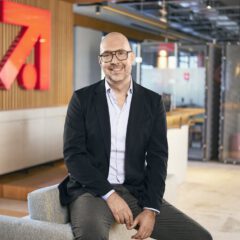
Wolfgang Link was appointed to the Executive Board of ProSiebenSat.1 Media SE in March 2020. He is responsible for all entertainment activities of ProSiebenSat.1 Media SE and is CEO of Seven.One Entertainment Group.
He joined the ProSiebenSat.1 Group in 2009 as Head of Entertainment at SAT.1, and was later responsible for all entertainment formats of the German station group as Senior Vice President, bringing “The Voice of Germany” to Germany, for example. From 2012 to 2016, he was Managing Director of ProSieben, became Managing Director of ProSiebenSat.1 TV Deutschland GmbH in October 2013 and took over as Chairman of the Executive Board shortly afterwards. In 2019, as co-CEO, he was responsible for merging the station brands, content, marketing and distribution operations under the umbrella of the Seven.One Entertainment Group, which will operate in 2020.
After studying communications, arts and psychology, Wolfgang Link initially worked for various musical and live productions. From 2003, as a producer and executive producer at Grundy Light Entertainment, he helped make the “Deutschland sucht den Superstar” format a success, among other things.
Regularily, our board member Albert Kehrer invites an inspiring role model of the LGBT*IQ community or an LGBT*IQ Ally for a chat. You can look forward to an interesting exchange about role models and visibility in the LGBT*IQ community.
This event took place in German.
GUEST OF THE DAY
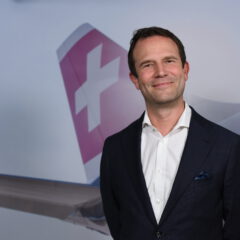
Lars Ottmer
Head of controlling, SWISS International Airlines, 13th place PROUT EXECUTIVES 2021
Lars has worked in various positions at SWISS International Airlines and its parent Lufthansa Group since 2000. At the moment, he is the Head of Controlling at SWISS, and before that he held senior positions in HR, leadership development, market and fleet strategy within the Group. He has twice acutely fought for the survival of SWISS during this time, most recently because of the Corona pandemic.
Within the Group, Lars is committed to the LGBT*IQ community and open interaction. For example, he helped SWISS take a barely veiled stand in the “marriage for all” referendum in Switzerland, and in his younger years he was also a political activist, including as a member of the city of Zurich’s parliament. In his wild party years, he was also a co-organizer of the Zurich “Street Parade”.
Regularily, our board member Albert Kehrer invites an inspiring role model of the LGBT*IQ community or an LGBT*IQ Ally for a chat. You can look forward to an interesting exchange about role models and visibility in the LGBT*IQ community.
This event took place in German.
Guest of the day

Max Appenroth
Trans* activist, diversity consultant, moderator, PhD student at Charité University Medicine Berlin, Research & Community Sexual Health Officer for GATE -Global Action for Trans Equality.
Max is so involved in so many ways that we don’t really know where to start – Max is a trans* activist, diversity consultant, moderator and is doing his PhD at the Institute for Public Health at Charité Universitätsmedizin Berlin. Max also works as a Research & Community Sexual Health Officer for GATE – Global Action for Trans Equality. Besides all his work and commitment, Max also won the election for Mr. Gay Germany 2022.
With their own company ‘diversity sparq’, Max offers workshops and trainings for companies, institutions and med/nursing care facilities that want to experience and learn more about sexual and gender diversity.
Regularily, our board member Albert Kehrer invites an inspiring role model of the LGBT*IQ community or an LGBT*IQ Ally for a chat. You can look forward to an interesting exchange about role models and visibility in the LGBT*IQ community.
This event took place in German.
Guest of the day
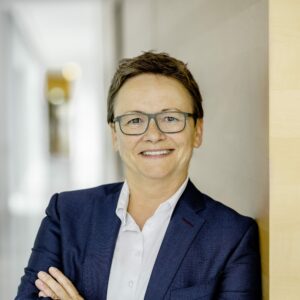
Birgit Spors
Head of Marketing + Digital Channels (Director) at KfW Bankengruppe
3rd place PROUTExecutives 2021
Birgit Spors is responsible for all customer interfaces at KfW Germany. In this role, she plays a key role in driving KfW’s connectivity to the digital economy. She wants to make funding simple, digital and accessible everywhere. Internally, she is involved in KfW’s Rainbow Network and, through her management function, also sends an important signal that equal opportunities are a reality at KfW and that she is an exemplary diversity employer.
Regularily, our board member Albert Kehrer invites an inspiring role model of the LGBT*IQ community or an LGBT*IQ Ally for a chat. You can look forward to an interesting exchange about role models and visibility in the LGBT*IQ community.
This event took place in German.
guest of the day
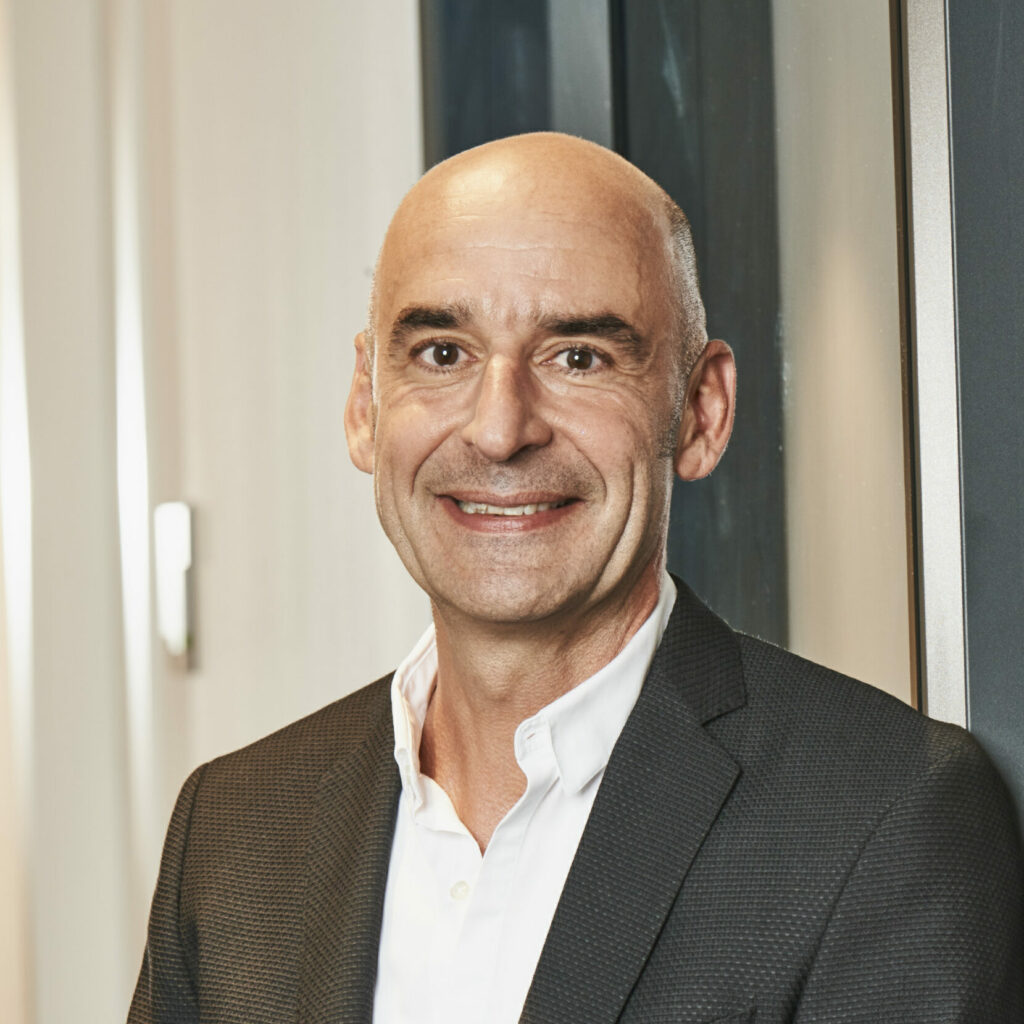
Dr. Christophe Campana
Founder and Managing Director of Campana & Schott
3rd place PROUTExecutiveAllies 2021
Dr. Christophe Campana is founder and managing director of the Campana & Schott group of companies. He has over 25 years of experience in (top) management consulting and is a member of various expert and advisory boards. He has been instrumental in shaping the company’s open, tolerant and diverse culture from the very beginning.
Christophe is also a sponsor and one of the biggest supporters of Campana & Schott’s LGBTQ+ network SCOUT. He has already accompanied the community on its way to coming out and is its trusted ally, advisor and friend.
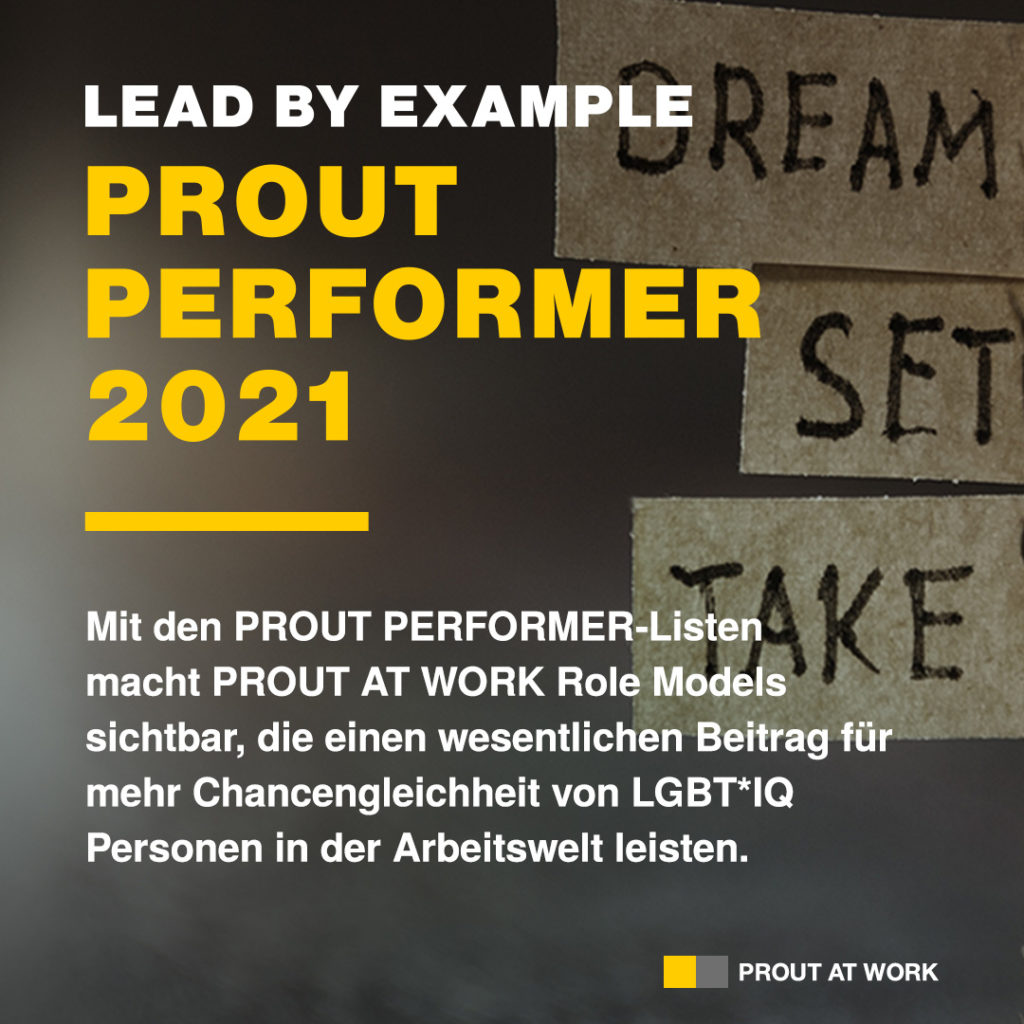
The PROUT PERFORMER lists 2021 are online!
The nomination process already started at the beginning of the year and now the time has finally come! You can now get a glimpse of this year’s PROUT PERFORMER lists and be inspired by impressive individuals and their stories.
Regularily, our board member Albert Kehrer invites an inspiring role model of the LGBT*IQ community or an LGBT*IQ Ally for a chat. You can look forward to an interesting exchange about role models and visibility in the LGBT*IQ community.
GUEST OF THE DAY
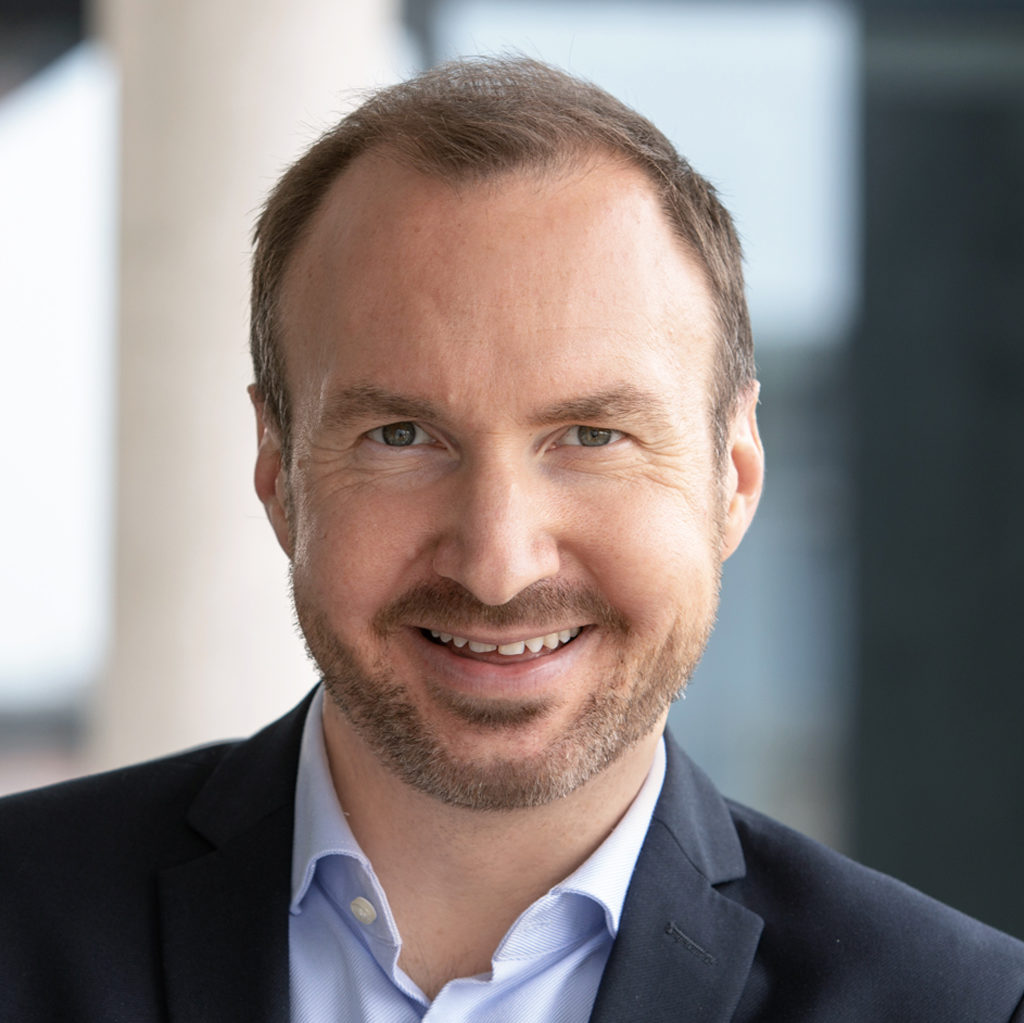
© Lichtbildatelier Eva Speith, Darmstadt
Philip Heßen
Head of HR Strategy & Transformation bei Merck
Ranked 6th on the TOP 100 OUT EXECUTIVES list 2020
Philip Heßen joined Merck KGaA, a leading science and technology company based in Germany, in 2014. Initially Philip held the position of Head of Global Rewards, followed by his role as Head of HR Germany and is currently responsible for the Global People and HR Strategy, acting as Head of HR Strategy & Transformation.
Philips professional career started with Siemens, where he was responsible for the initiation of a share-based incentive and establishing an employee-share-culture. In 2011, he transitioned to the high-tech company OSRAM as Global Rewards and Executive HR Manager and, among other things, supported the company’s flotation (IPO) and Divesture from the parent company Siemens.

INTERVIEW WITH DR. JEAN-LUC VEY ON THE START OF NOMINATIONS FOR THE PROUT PERFORMER-LISTS
“LISTS LIKE PROUT PERFORMER SHOW THAT IT IS POSSIBLE TO TALK OPENLY ABOUT your SEXUAL orientation AND GENDER IDENTITY AND BE SUCCESSFUL IN YOUR CAREER AT THE SAME TIME.”
Hello Jean-Luc. Thank you for your time and for giving us the opportunity to do this interview. PROUT AT WORK is publishing the new PROUT PERFORMER lists for the first time this year. How does it come about?
Jean-Luc Vey: First of all, I would like to thank everyone involved in GERMANY’S TOP 100 OUT EXECUTVES for making the list as successful as it has been over the last three years. Those are mainly the role models who made it onto one of the lists, but also every single nominee. I would also like to thank those who nominated their colleagues and people they know. Above all, I would like to especially thank the jury and our cooperation partners.
They have all contributed a great deal to the visibility of the LGBT*IQ community in Germany. The lists have shown that it is possible to be open about one’s sexual orientation or gender identity in everyday working life without experiencing negative career consequences. With their commitment to equal rights and equal opportunities for LGBT*IQ people at work, those who made it onto the list serve as role models for the entire LGBT*IQ community and beyond.
PROUT AT WORK terminated the collaboration with our partner at the end of the year. However, the visibility of LGBT*IQ at work is still very close to our hearts. Therefore, we have decided to continue the lists with a new name, to further develop them and to publish them on our own in 2021. Being out in the workplace should be the rule and not the exception. We will continue to work for this in the future with our various projects.
Why are these lists so important?
Jean-Luc Vey: As already mentioned, this is mainly about visibility. Studies continue to show that many LGBT*IQ students go back into the closet once they start their professional lives, out of fear that coming out will have a negative impact on their careers. Lists like PROUT PERFORMER show that it is possible to be open about your sexual orientation and gender identity and be successful in your career at the same time. This helps others to have the confidence to come out as well. And this in turn has been proven to have positive effects on mental health and productivity at work.
What is the difference between the new PROUT PERFORMER-lists and the former TOP 100 OUT EXECUTIVE lists?
Jean-Luc Vey: In order to make the PROUT PERFORMER-lists even more attractive, we first carried out a survey among old candidates to find out where they felt there was still room for improvement. We took this feedback to heart in the following redesign and incorporated it into the structure of the new lists. Therefore, we now have more distinct categories in the PROUT PERFORMERS-lists and for example have created a separate list for SMEs. In addition, Executive Allies are now also being recognised on a special list. Another new aspect is that we only rank the top places on the list, as we do not want to create competition between the individual candidates.
But why rank the top places anyway?
Jean-Luc Vey: This is because there are still some people who have done particularly outstanding work for LGBT*IQ equality at the workplace over the past year – with important initiatives, new projects or other activities. We would like to give them special attention by highlighting them at the top of the list.
What part does the PROUT PERFORMER jury play in this?
Jean-Luc Vey: We spoke with the jury ahead of redesigning the lists, too. We are very proud to have won such top-class people for the project again. But we are also aware that due to their important roles in their companies, they often do not have the time to evaluate each candidate individually – this was also expressed in their direct feedback.
Therefore, the first evaluation will be carried out by the PROUT AT WORK-Foundation, which will use the information and criteria submitted to determine who will earn a spot on the list and who, because of their exceptional achievements, will have a chance to reach one of the highest-ranking positions. These people are then asked to introduce themselves to the jury through a short video clip, and the jury then determines the top positions. This way we were able to secure the prominent jury members and still ensure an attractive evaluation process for the nominees.
How can people nominate their role models for the PROUT PERFORMER-lists?
Jean-Luc Vey: Nominations are now accepted through our website. It can be found at proutperformer.de. We are looking forward to all nominations and to creating more visibility for LGBT*IQ at the workplace together with our community.
